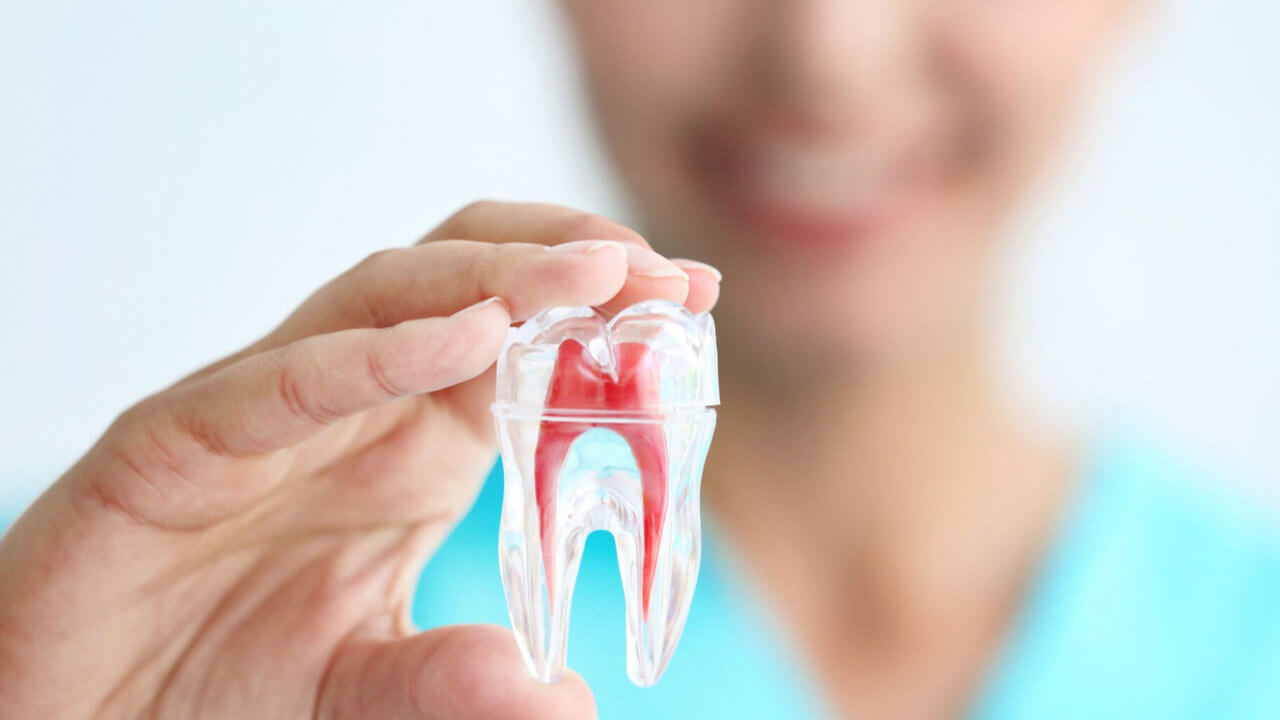Is tooth pain ruining your day? A root canal could be your ticket to relief, and at Chic Dental, we specialise in making the process as smooth and comfortable as possible. Located in Preston, our expert team provides gentle, effective root canal treatment designed to save infected teeth.
Is tooth pain ruining your day? A root canal could be your ticket to relief, and at Chic Dental, we specialise in making the process as smooth and comfortable as possible. Located in Preston, our expert team provides gentle, effective root canal treatment designed to save infected teeth.

Using advanced technology and pain-free techniques, we ensure you feel at ease from start to finish. Root canal treatment is a common procedure designed to treat infection or damage inside a tooth, helping to relieve pain and prevent further issues. Our friendly team is committed to guiding you through each step of the treatment, creating a supportive environment focused on your health and comfort.
Say goodbye to tooth pain and take the first step towards a healthier smile! At Chic Dental, we prioritise successful outcomes, restoring your tooth’s health and function so you can smile confidently once again.


Root canal treatment has advanced significantly, using modern techniques and technology to provide effective, comfortable care. Today’s procedures offer benefits that help relieve pain, treat infection, and preserve natural teeth, supporting both oral health and long-term tooth function.
Root canals remove infected or inflamed pulp, reducing or eliminating the discomfort caused by tooth decay or injury.
Unlike extraction, a root canal saves your natural tooth, helping maintain your bite and chewing function.
By cleaning and sealing the inside of the tooth, root canal treatment helps stop the infection from spreading to surrounding teeth and gums.
After a root canal and any necessary restoration, such as a crown, the treated tooth can continue to function normally, allowing you to bite and chew without discomfort.
Keeping your natural tooth helps support surrounding teeth and bone, reducing the risk of shifting teeth or bone loss over time.
Root canal treatment avoids the need for more extensive procedures like implants or bridges, preserving more of your natural tooth structure.
A root canal treats infection or damage inside the tooth, often caused by decay, gum disease, or injury. It removes the affected pulp, relieves discomfort, and helps preserve the natural tooth. At Chic Dental, we make the procedure comfortable and stress-free. Here’s how it works:










Discover the latest in restorative dentistry, from fillings and crowns to root canal treatment and tooth repair. Our articles share expert advice, treatment insights, and tips for maintaining healthy, functional teeth.

Thinking about getting a dental crown but wondering about the cost? Understanding what affects the price can make it easier to plan. Crowns are made to fix and protect teeth, but their price can change based on different things. Knowing what to expect helps you make a smart choice for your smile. Let’s explore the […]

In dentistry, inlays and onlays are a form of indirect restorations, which means they are made outside of the mouth as a single, solid piece that fits the specific size and shape of the cavity and then cemented in place in the tooth. This process generally takes two visits. Inlays lie inside the cavity of the tooth and do […]

Dental Crowns and Bridges are fixed device that are cemented onto existing teeth or dental implants. It extends the longevity of tooth in patient’s mouth and makes them stronger. Crowns (tooth cap) are commonly used for the following reasons: Cover a damaged tooth and restored a large filling where there is not enough bonding surface […]
Determining the necessity of a root canal treatment involves various factors beyond just the presence of tooth pain. It’s a common misconception that pain is the only indicator of dental issues warranting such intervention. This section delves into the complexities surrounding root canal treatments, particularly in instances where tooth pain may not be evident.
Indicators for Root Canal Treatment
The necessity for a root canal often transcends the symptoms of pain. Several other factors and conditions may indicate the need for this procedure, even in the absence of discomfort:
Diagnosing the Need for a Root Canal
Dentists use a combination of clinical examination, patient history, and diagnostic tools, such as X-rays, to determine the necessity of a root canal. These examinations help identify any damage or infection in the tooth’s pulp, even in the absence of symptoms.
The Importance of Early Intervention
Treating a tooth with a compromised pulp as early as possible is crucial, even if there’s no pain. Procrastinating treatment can result in infection spreading, leading to more severe health complications like jawbone decay and systemic infection. Timely intervention with a root canal can salvage the tooth, avoiding extraction and maintaining the patient’s natural bite and oral well-being.
To conclude, root canal treatments are not solely dictated by the presence of tooth pain. Various conditions, including deep decay, cracked teeth, repeated dental procedures, and visible signs of infection, can necessitate this procedure to preserve the tooth and maintain oral health. Understanding the broader spectrum of indicators for a root canal highlights the importance of regular dental check-ups and early intervention, ensuring that issues are addressed promptly, even in their asymptomatic stages.
Most root canals are completed in one to two appointments. The first session typically takes 60–90 minutes, depending on the complexity of the case. If the infection is severe, your dentist may ask you to return for a second visit to complete the sealing process.
Not at all! Thanks to modern dental techniques and local anaesthesia, a root canal is no more uncomfortable than getting a standard filling. You may feel slight pressure during the procedure, but there shouldn’t be any pain. Some mild soreness or sensitivity is normal afterward, but this can be managed with over-the-counter pain relievers.
With proper care, a root canal-treated tooth can last a lifetime. Good oral hygiene and regular dental check-ups are key.
Yes, but you should be cautious. Stick to soft foods like yogurt, mashed potatoes, soup, and smoothies for the first 24–48 hours. Avoid:
After full healing and if a crown is placed, you can return to your normal diet.
Yes, once the treatment is completed and the tooth is restored with a high-quality filling or crown, it will be fully functional and durable. However, because a root canal-treated tooth is no longer alive, it may become slightly more brittle over time, which is why a crown is often recommended for added protection.
A root canal is almost always the best option if the tooth can be saved. Tooth extraction should only be considered if the damage is too severe, and even then, options like dental implants or bridges will be needed to replace the missing tooth.
Root canal treatment is indeed suitable for children in certain situations. Children’s teeth, particularly primary (baby) teeth, play crucial roles in their oral development, including maintaining space for permanent teeth, aiding in speech development, and ensuring proper nutrition through adequate chewing functions. When a child’s tooth becomes severely infected or damaged, a root canal treatment may be necessary to save the tooth and prevent further oral health issues.
Many dental insurance plans partially or fully cover root canal treatment, but coverage varies. We can help you check your benefits and explore payment options to ensure your treatment is affordable.
Prices vary based on the tooth location, complexity, and additional treatments needed. At Chic Dental, we offer affordable pricing and flexible payment plans to make quality dental care accessible to everyone.